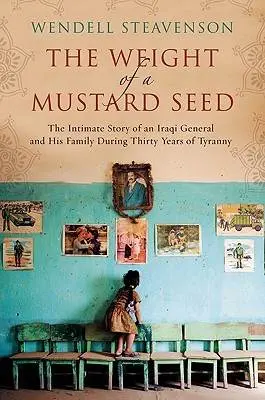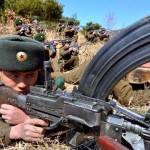Pradeep Kanthan 6 June 2011

The Weight of a Mustard Seed
By the Weight of a Mustard is a book written by Wendell Steavenson, an American academic living in UK or the other way round. It made interesting reading and gave some insight into the Saddam era in Iraq, especially the army. The central character in the book is a late Iraqi general: General Sachet (Kamel Sachet Aziz al-Janabi).
Saddam needed his generals and those who toed his line were showered with all the good stuff and those who didn’t were just bumped off. The Bath party had its ways to remain in power. During the protracted Iran-Iraq war, withdrawal was at the cost of execution of field commanders. Soldiering was with a fear psychosis, or so it would seem.
The society at large was modern and European in taste when it came to women’s clothing, it vanished with the US invasion. The other thing that vanished unseen was the remnants of the Iraqi Army. It is hard to make any judgment, but one can only compare and say that every army has its true soldiers, the few good men. General Sachet was one such man who was revered by all, a devout Muslim, who built mosques for the poor and grew in respectful popularity. This irked Saddam’s cronies and he was finally executed. I’d like to compare him to Rommel in Nazi Germany. Loyalty to Iraq was secondary to toeing the regime’s line, while both were rewarded to an extent, the former not really tolerated. The armed forces used psychiatrists, who formed a pool of information in Saddam’s decision making. The Mukhabarat was the dreaded secret service that espied on the people. Distrusting and being defensive became the characteristics of Iraqi society.
General Sachet was executed by Sadam just before the US invasion. The invasion and the US itself gave no importance to the Iraqi Army or its Generals who were ignored. This was perhaps a strategic folly as can be seen by the implosion of warring groups that emerged and continue to date. The Sunni -Shia equation now is such that the US supports Iran backed Shite government in power in Iraq! There is good reasoning as to why the US invasion into Iraq has actually strengthened Iran’s position in the region. The situation may have been different had the US adopted the Iraqi army and its generals, good and not so good ones alike, much as the British did of their conquered lands in the days of the British Empire. Most of Iraq’s senior armed forces officers fled the country into neighbouring Jordan, ending up writing memoirs hoping to catch the attention of American journalists.
From a military psychology point of view, command by threat or fear is not soldiering, but a tyrannical slave driving. Love of country makes many endure a lot of hardship, and there is a time when the distinction between it being a job or a patriotic duty becomes clear. It is situational as in times of war it is patriotism, otherwise just a job. To be ignored would have hurt many and possibly created enemies of who could potentially have been friends.
During his time General Sachet was a hero of the Iran-Iraq war, the commander of the Iraqi forces in Kuwait and later the Governor of Maysan Province. His fault was his love for Iraq over Saddam. The book recounts how the Bathist loyalists managed to live in Saddam’s Iraq. Saddam did not want to hear of defeat, no one would mention it as it would mean the end of one’s self. So a dual sense of loyalty through fear crept in, one to appease Saddam and behind his back and in a safe way to that of morality.
The book is interesting and I must admit some skepticism in the beginning to read a biased version of events, which it was not.




Well that is the truth when you have a dictator. Many good deserving people are executed in the garb of vims and fancy of the ruler’s desires when he is losing and there are internal revolts against his rule. This way, the country loses some of the finest intellectuals of the country as the dictator is going to be abolished by another powerful man or a country.
Same thing happened in East Pakistan when the intellectual seniors were murdered by the Pak army Gen Niasi. Infact this was the last straw when the prime minister of India decided to para drop troops into Dhakha and seek quick surrender.
Highly readable style. Simple yet probing. some other piece I read on China is also depiction of military
a depiction*
A very well written critique of the book with interesting observations. Reflects the mllitary back ground and interest of the reader. Comments on fear of a regime and loyalty to ones country. Patriotism over a despot are well described. The mistakes made when a society is run on fear and that made of the West not studying the situation and just marching hoping to solve a problem and ending up making it worse. Enjoyed reading the above.
Thanks